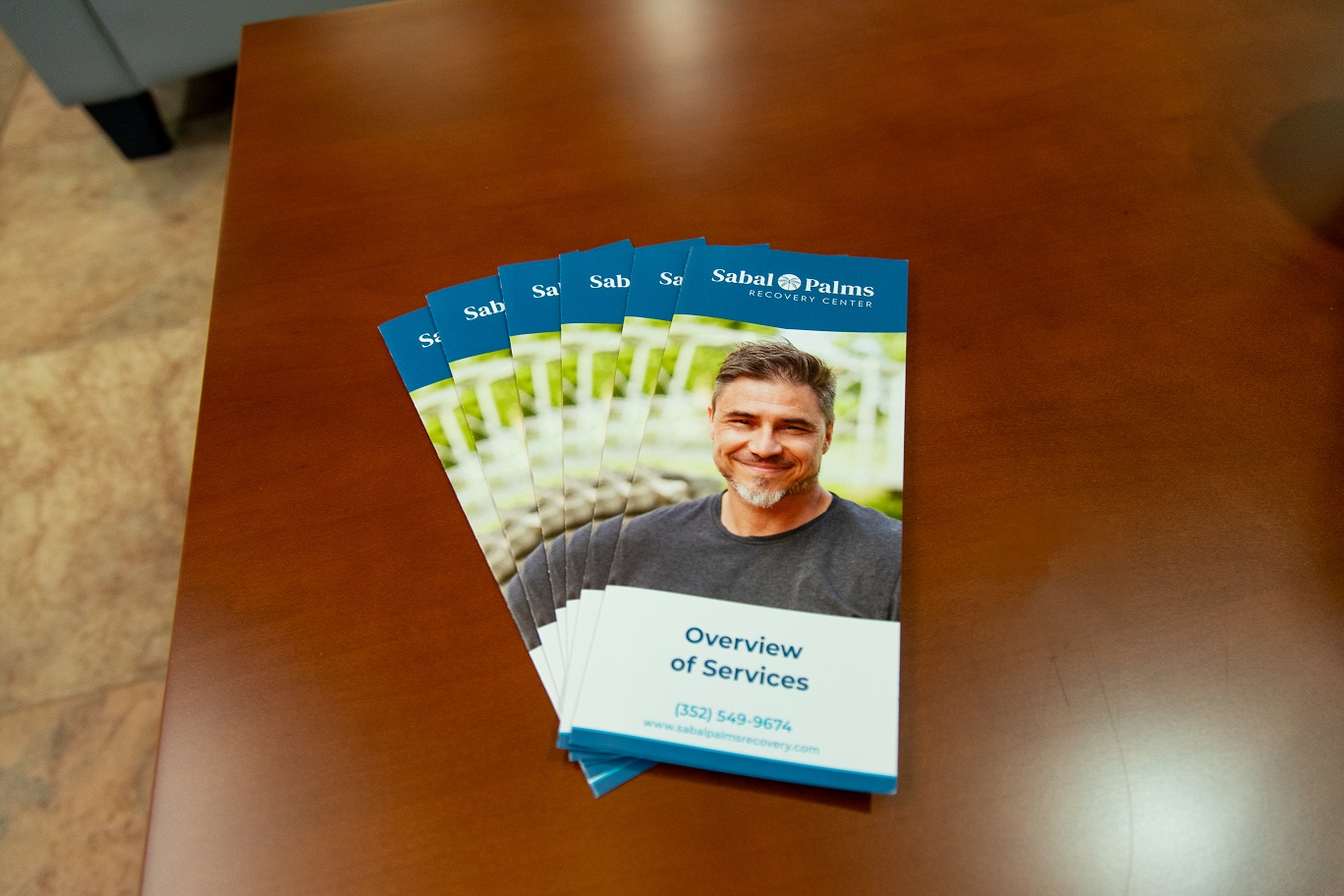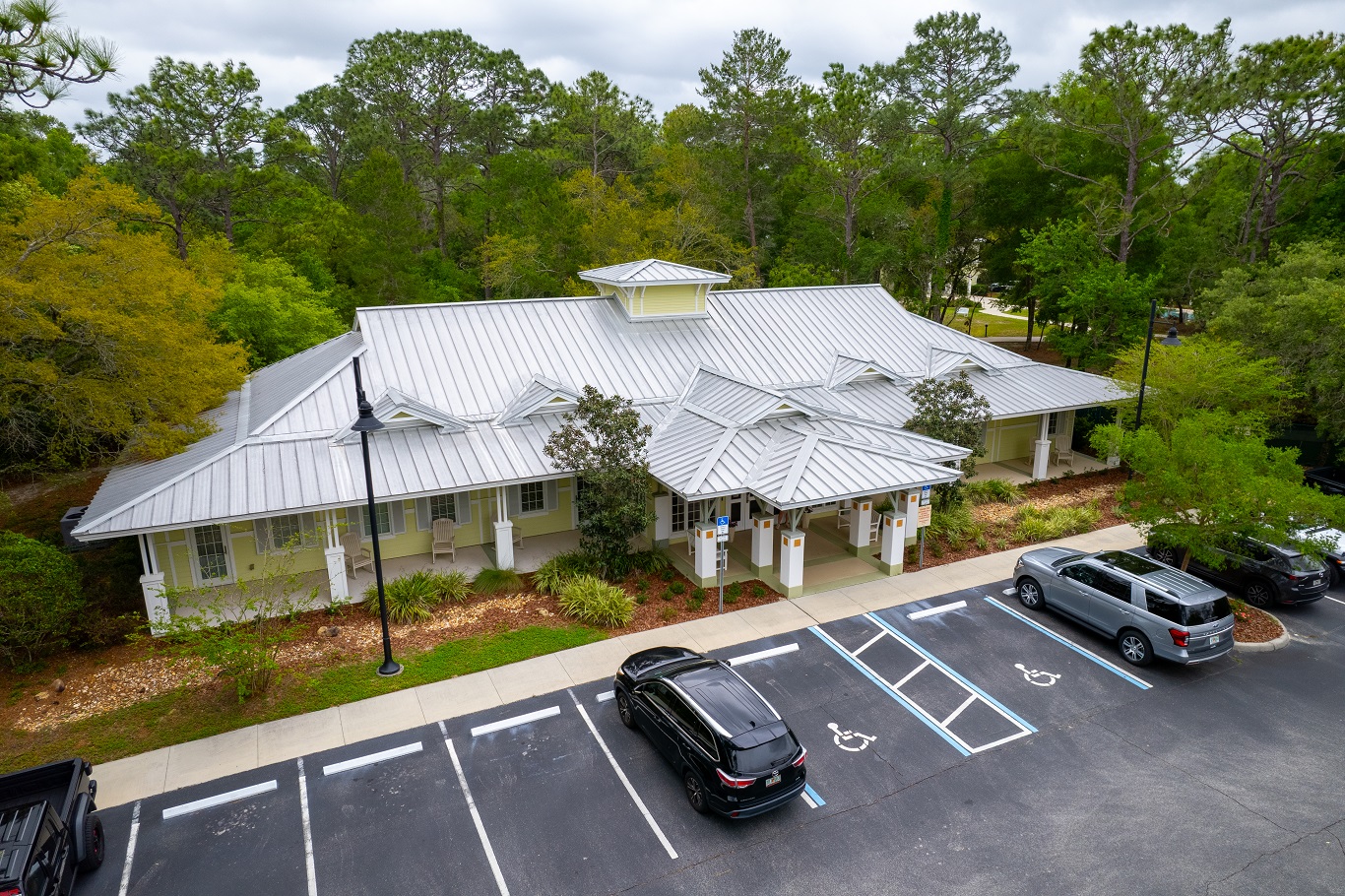Sabal Palms Recovery Center, located in Brooksville, Florida, serves individuals who are struggling with heroin addictions. Reaching out for help may be difficult, but receiving treatment for a substance use disorder can change every aspect of your life. You don’t have to continue to suffer. Our compassionate treatment team is here to help you begin your recovery journey today.
What Is Heroin Addiction?
Heroin addiction is a chronic disease that is characterized by an uncontrollable urge to use heroin despite experiencing negative effects. Heroin is an illegal and highly addictive opioid, and its use can have severe physical, psychological, social, and legal consequences.
Heroin is a substance that is derived from morphine, which comes from the seeds of some varieties of poppy plants. It is a rapidly acting and widely abused opioid. This drug can be found as a white or brown powder or as a sticky black substance. Heroin is commonly cut with other substances, such as sugar or starch. Because of this, people who use heroin might not know the exact potency of the heroin they are consuming. This can increase their risk for overdose or death.
Heroin is most often injected straight into the veins or muscles, but it can also be snorted, smoked, taken orally, or used as a suppository. The surge of euphoria can be felt minutes after consuming heroin and lasts for only a few hours before disappearing. The positive feelings from the high are then quickly replaced by drowsiness and difficulty with mental functioning.
Tolerance develops with regular heroin use, and someone will need to use more of the drug to achieve the same intensity and effects. Over time, these higher doses can cause the person to become physically addicted to heroin. This means that the individual’s body has adapted to the presence of the drug, and withdrawal symptoms will likely occur if they stop using it.
Signs & Symptoms of Heroin Addiction
The signs and symptoms of heroin addiction can vary from person to person. The severity of the symptoms depends on how long the person has been using the drug, their frequency of use, and their individual genetic makeup. According to the fifth edition of the Diagnostic and Statistical Manual of Mental Disorders (DSM-5), common signs and symptoms of heroin addiction include the following:
- Agitation and irritability
- Lying about drug use
- Avoiding loved ones
- Inability to fulfill responsibilities at work or school
- Increased sleep
- Apathy and lack of motivation
- Decline in occupational or academic performance
- Slurred speech
- Track marks on arms and legs
- Constricted pupils
- Mood swings
- Anxiety, hallucinations, and paranoia
- Possession of drug paraphernalia, such as burned spoons, needles or syringes, and glass pipes
Many of these signs and symptoms are accompanied by compulsive drug-seeking behavior and use. The longer someone uses heroin, the more pronounced these signs and symptoms become. It can be very challenging for someone to stop using heroin once they begin. However, there is hope, and treatment is available.
What Is Heroin Withdrawal?
Heroin causes profound changes in the brain, which makes it very addictive. If someone stops using heroin abruptly or there is a prolonged period of time between doses, they will experience withdrawal symptoms. Heroin withdrawal symptoms can develop as soon as a few hours after the last use. Someone who is going through withdrawal is at risk for serious medical complications.
Signs and symptoms of heroin withdrawal may include:
- Intense cravings for the drug
- Extreme sweating
- Nausea, vomiting, and diarrhea
- Severe muscle aches and pains
- Cramping in the limbs
- Feelings of heaviness in the body
- Insomnia
- Fever
- Seizures
At Sabal Palms Recovery Center, we provide detox and residential treatment for adults age 18 and older who are struggling with heroin addiction. Our expert staff of doctors, nurses, and nurse practitioners supervises the detox program. These professionals monitor clients while they go through the withdrawal process and are available to address any medical needs as they arise. Heroin withdrawal can be an unpleasant experience, but we are able to prescribe Suboxone for clients who need it. This medication can help individuals safely and comfortably rid their bodies of heroin.
Effects of Heroin Addiction
The effects of untreated heroin addiction can be devastating. Heroin addiction can grow more severe by the day until it begins to take over someone’s life. People may gradually spend more and more time obtaining and using the drug. Heroin use can disrupt every area of someone’s life and affect their relationships, employment, and financial stability.
Heroin is very dangerous, and its use can contribute to a number of negative health effects. These effects may include:
- Skin infections and abscesses around injection sites
- Damage to the valves of the heart
- Blood clots, which can lead to stroke, pulmonary embolism, and heart attack
- Kidney and liver disease
- Risk for developing bloodborne illnesses, such as human immunodeficiency virus (HIV), hepatitis B (HBV), and hepatitis C (HCV)
- Collapsed, scarred veins
- Difficulty breathing
- Seizures
- Overdose
- Death
At Sabal Palms Recovery Center, we understand how difficult it can be to make the important decision to receive help for a heroin addiction. You might feel nervous about the withdrawal process or what to expect during treatment. Our compassionate staff members are here to do everything they can to make you feel comfortable throughout every step of your recovery process.
Heroin Addiction & Co-Occurring Disorders
Heroin use can worsen the symptoms of existing mental health disorders or contribute to the development of a mental health disorder. Similarly, someone who has a mental health condition may turn to drug use as a form of self-medication. At Sabal Palms Recovery Center, we treat people who have a primary diagnosis of a substance use disorder. We also offer care for co-occurring mental health concerns, including:
- Depression
- Anxiety
- Bipolar disorder
- Schizophrenia
- Posttraumatic stress disorder (PTSD)
The overlapping symptoms of mental health disorders and heroin addiction can make treatment more challenging. For example, symptoms of depression and anxiety can be both a cause and a result of heroin use. Effective treatment for heroin addiction takes into consideration co-occurring mental health disorders. At our heroin addiction recovery center near Tampa, we take a comprehensive approach to care that addresses the physical, emotional, and social aspects of addiction and co-occurring mental health disorders.
Causes of & Risk Factors for Heroin Addiction
The causes of and risk factors for someone developing a heroin addiction are diverse and interconnected. At Sabal Palms Recovery Center, we recognize that there is a combination of factors that can contribute to addiction. By providing clients with individualized care plans, we can address the unique circumstances surrounding each client’s reason for seeking care. Causes of and risk factors for developing a heroin addiction may include:
- Genetics: Individuals who have a family member who struggles with a substance use disorder are more prone to developing an addiction themselves.
- Environmental influences: Growing up in an environment where drug use is prevalent or where there is a lack of parental supervision can increase someone’s risk for developing a heroin addiction.
- Existing mental health concerns: If someone has a mental health disorder like depression, anxiety, or bipolar disorder, they are at a higher risk for using drugs like heroin as a form of self-medication.
- Early age of first substance use: Early exposure to drugs, including alcohol and tobacco, can increase someone’s likelihood of developing a heroin addiction later in life.
- Prescription opioid abuse: Many individuals who develop heroin addiction start with the misuse of prescription opioids. When these medications become inaccessible or too expensive, the person may turn to heroin as a cheaper and more readily available alternative.
- Socioeconomic factors: Economic hardships and lack of employment opportunities can increase someone’s risk for turning to drug use.
- Brain chemistry: If someone has an addiction to heroin, their brain does not process pain or pleasure in the same way. Because of this, they may use drugs like heroin in an attempt to feel pleasure again.
At Sabal Palms Recovery Center, we believe that heroin addiction treatment is the most effective when it reflects a client’s unique background, specific needs, and goals for the future. Our heroin addiction treatment program is designed to provide clients with a safe and secure place where they can begin taking steps toward a healthier, more fulfilling life.
Treatment for Heroin Addiction at Sabal Palms Recovery Center
At Sabal Palms Recovery Center, we work hard to provide every person who comes to us for care with premier addiction and co-occurring mental health treatment. When you arrive at our heroin addiction treatment center, you will first undergo a comprehensive medical and psychological assessment. We will use the information we gather from your assessment to create your treatment plan, which may include the following elements:
- Basic medical care
- Medication management services
- Detoxification
- Cognitive behavioral therapy (CBT)
- Individual, family, and group therapies
Our substance abuse programs have a number of different treatment options, so you can be assured that you are going to get treatment that is tailored to your specific needs.
Heroin Addiction Statistics
Thousands of people in the U.S. die every year from heroin use, and countless others continue to struggle with heroin addiction. Data gathered by the National Center for Drug Abuse Statistics (NCDAS) reveals the following about heroin use in the U.S. among people age 12 and older:
- 902,000 individuals use heroin every year.
- 6.25 million people will use heroin at least once in their lifetime.
- 80% of people who use heroin had first misused prescription opioids.
- 14,019 people die each year after overdosing on heroin.
- Between 2010 and 2020, deaths related to heroin overdose more than quadrupled.
- Men die from a heroin overdose three times more than women.
These statistics are a stark reminder of how serious heroin addiction is and how it continues to impact people in the U.S. at alarming rates. At Sabal Palms Recovery Center, we are committed to helping address this national problem through our comprehensive programming. We believe that with the right support, someone can stop using heroin and live a life of freedom from addiction.

































